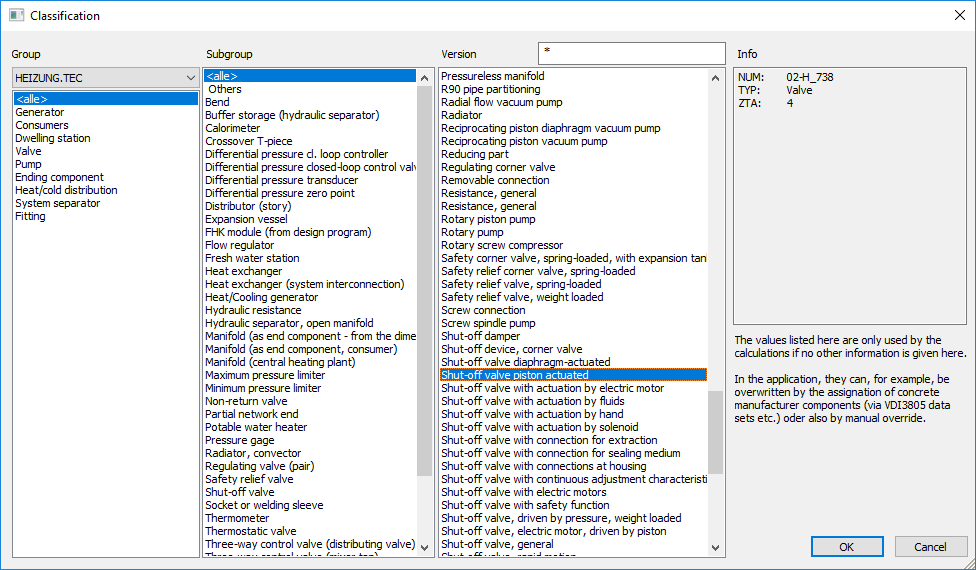About Classify
Explains the concept of classifying components.
Via Classification, the suitable calculation type is assigned to component families in order for them to perform the desired function during calculation.

The components in this dialog are divided into Group, Subgroup and Variant. In the group you first select the type of component. You then select the calculation type in the subgroup. With this function, a component family is classified e.g. as a washstand or a toilet and specifies default values for technical data to be used for calculation. Some calculation types have several variants for further definition, which have a different name and for which different technical data is stored.
Technical data can be edited in each component individually. Use the function Technical data... in the Components section to do this.
After you carried out the classification, the assignment is saved both to the concrete type of the selected component family (and thus in the project) and to the corresponding (local) user file. For component families with multiple types, the assignment is stored at the family and at the concrete type. A family with several types can therefore also contain different classifications. When you release your project for collaboration in the BIM context, all classifications are preserved.
If a project contains unclassified components, proposals can be loaded from the locally available user file in the Classification dialog. Afterwards, a message informs about the number of loaded assignments. After closing the dialog, the loaded classification suggestions are saved to the family types by clicking OK as described.
During classification, a components number of connectors and the flow direction in those connectors is determined. A washstand e. g. has two inlets for cold and hot water and one outlet for waste water.